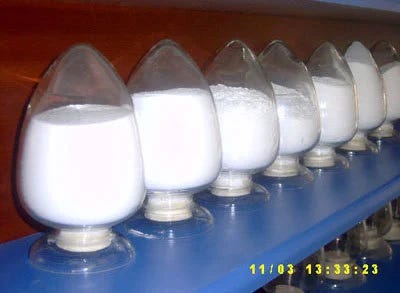Ensuring Consistent Quality: Best Practices for Tiotropium Bromide Monohydrate Suppliers
Ensuring the consistent quality of Tiotropium Bromide Monohydrate is paramount for suppliers, given its critical role in respiratory treatments. As a bronchodilator used primarily for chronic obstructive pulmonary disease (COPD), the efficacy and stability of Tiotropium Bromide Monohydrate directly impact patient health and treatment outcomes. This blog post explores the best practices for Tiotropium Bromide Monohydrate supplier to ensure consistent quality throughout the supply chain, emphasizing the importance of stringent quality control, adherence to Good Manufacturing Practices (GMP), and thorough supplier audits.
Quality Control Measures for Tiotropium Bromide Monohydrate Manufacturing
How Suppliers Maintain High Standards in Tiotropium Bromide Monohydrate Production
The Importance of GMP in the Pharmaceutical Industry
Steps to Ensure the Stability and Efficacy of Tiotropium Bromide Monohydrate
Supplier Audits and Certifications: What to Look For
Quality Control Measures for Tiotropium Bromide Monohydrate Manufacturing
Effective quality control measures are the backbone of any pharmaceutical manufacturing process. For Tiotropium Bromide Monohydrate suppliers, adopting comprehensive quality control protocols is essential to maintain product integrity. These measures include rigorous testing at various stages of production, from raw material sourcing to final product packaging.
Analytical testing such as High-Performance Liquid Chromatography (HPLC) and Mass Spectrometry (MS) is employed to verify the chemical composition and purity of the compound. Additionally, physical tests assess the particle size distribution and moisture content, ensuring that each batch meets the specified standards. Regular equipment calibration and maintenance, coupled with standardized operating procedures, further contribute to the reliability of these quality control measures.
How Suppliers Maintain High Standards in Tiotropium Bromide Monohydrate Production
Maintaining high standards in Tiotropium Bromide Monohydrate production necessitates a commitment to continuous improvement and adherence to stringent guidelines. Suppliers often implement robust training programs for their staff to ensure that they are well-versed in the latest industry standards and technological advancements. This ongoing education helps prevent errors and enhances overall production efficiency.
Moreover, suppliers must foster a culture of quality, where every employee understands the critical importance of their role in maintaining product standards. Regular internal audits and reviews help identify potential areas for improvement, ensuring that the production process remains aligned with industry best practices.

The Importance of GMP in the Pharmaceutical Industry
Good Manufacturing Practices (GMP) are a set of regulations that ensure the quality, safety, and efficacy of pharmaceutical products. For Tiotropium Bromide Monohydrate suppliers, compliance with GMP is not just a regulatory requirement but a cornerstone of their operational philosophy. GMP guidelines cover all aspects of production, from raw material selection and facility design to staff training and documentation.
Adhering to GMP ensures that products are consistently produced and controlled according to quality standards. This compliance minimizes the risks of contamination, mix-ups, and errors, which are crucial for maintaining the therapeutic efficacy of Tiotropium Bromide Monohydrate. Suppliers that prioritize GMP adherence demonstrate their commitment to delivering safe and effective pharmaceutical products to the market.
Steps to Ensure the Stability and Efficacy of Tiotropium Bromide Monohydrate
Ensuring the stability and efficacy of Tiotropium Bromide Monohydrate involves several critical steps. Firstly, suppliers must conduct extensive stability testing under various environmental conditions to determine the compound’s shelf life and storage requirements. This testing helps establish appropriate storage guidelines, which are vital for maintaining product potency over time.
Secondly, suppliers should implement robust packaging solutions that protect the compound from environmental factors such as light, humidity, and temperature fluctuations. Using high-quality packaging materials and techniques can significantly enhance the stability of Tiotropium Bromide Monohydrate, thereby ensuring its efficacy when administered to patients.
Supplier Audits and Certifications: What to Look For
When selecting a Tiotropium Bromide Monohydrate supplier, it is essential to consider their audit and certification credentials. Supplier audits provide valuable insights into the supplier’s manufacturing practices, quality control measures, and compliance with regulatory standards. Key aspects to look for during an audit include the supplier’s adherence to GMP, their quality management system, and their track record of regulatory compliance.
Certifications from recognized industry bodies, such as ISO 9001 and ISO 14001, further attest to the supplier’s commitment to quality and environmental management. Additionally, suppliers with certifications from regulatory agencies, such as the FDA or EMA, offer an added layer of assurance regarding the safety and efficacy of their products.
In conclusion, ensuring consistent quality in Tiotropium Bromide Monohydrate production requires a holistic approach that encompasses stringent quality control measures, adherence to GMP, continuous improvement, and thorough supplier audits. By prioritizing these best practices, suppliers can maintain high standards, ensuring that their products meet the critical needs of patients and healthcare providers alike. For more information on high-quality Tiotropium Bromide Monohydrate, visit fuaij.com
Comments
Post a Comment